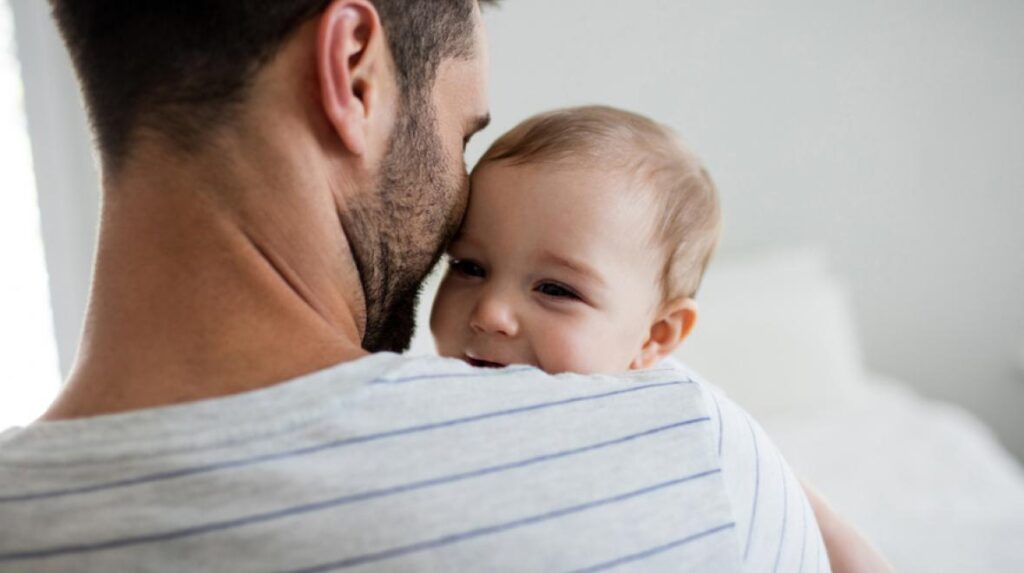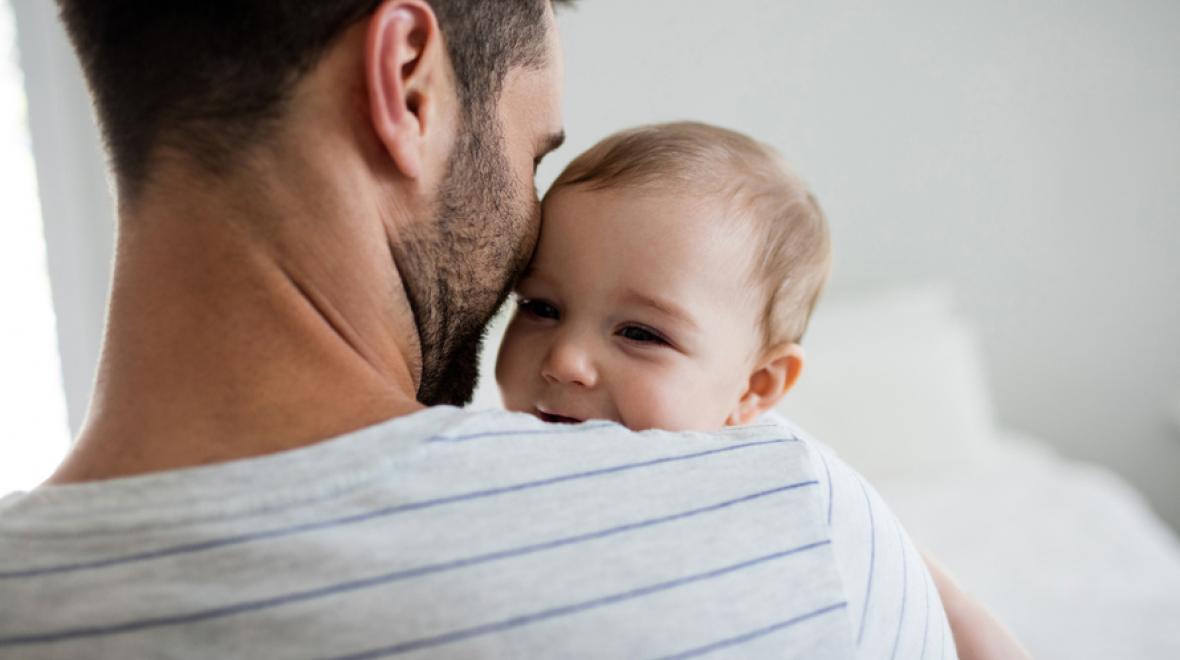
The Evolving Role of the Parent Dad: Redefining Fatherhood in the 21st Century
The concept of the “parent dad” has undergone a significant transformation in recent decades. No longer confined to traditional breadwinner roles, fathers are increasingly embracing a more active and nurturing presence in their children’s lives. This shift reflects broader societal changes, including evolving gender roles, increased awareness of the importance of early childhood development, and a growing recognition of the benefits of shared parenting. Understanding this evolution is crucial for fostering stronger families and supporting fathers in their multifaceted roles. This article explores the evolving role of the parent dad, examining the challenges, rewards, and societal implications of this transformation. The changing dynamics of family life necessitate a re-evaluation of traditional expectations and a greater understanding of the valuable contributions that fathers make to their children’s well-being. The modern parent dad is not just a provider; he is a caregiver, a confidant, and a co-parent, actively involved in every aspect of his child’s life. These changes have been propelled by many factors, and this article seeks to explore those changes and their impact.
Historical Context of Fatherhood
Historically, the role of the father has often been defined primarily by economic provision and, to a lesser extent, discipline. In many cultures, fathers were seen as the head of the household, responsible for ensuring the family’s financial stability and maintaining order. This traditional model often relegated mothers to the primary caregiver role, with fathers having limited direct involvement in child-rearing activities. However, this rigid division of labor has gradually eroded over time, driven by economic shifts, changing social norms, and a greater emphasis on gender equality.
The industrial revolution played a significant role in shaping traditional fatherhood roles. Men increasingly left the home to work in factories and offices, leading to a physical and emotional distance between fathers and their children. This separation reinforced the idea of the father as primarily a provider, while mothers assumed greater responsibility for nurturing and educating children. The post-World War II era saw a brief resurgence of traditional family structures, but this was soon challenged by the feminist movement and changing attitudes towards gender roles.
The Rise of the Involved Father
The latter half of the 20th century witnessed a growing movement towards more involved fatherhood. Factors such as increased female participation in the workforce, rising divorce rates, and a greater understanding of the importance of early childhood development contributed to this shift. Research consistently demonstrates that children with actively involved fathers tend to perform better academically, have fewer behavioral problems, and exhibit greater emotional well-being. As awareness of these benefits grew, fathers began to embrace a more hands-on approach to parenting.
This change is also reflected in popular culture, with more media representations of fathers actively participating in childcare and household tasks. While stereotypes still exist, there is a growing recognition of the diversity of fatherhood experiences and the importance of supporting fathers in their efforts to be more involved. The concept of the “parent dad” has become increasingly normalized, reflecting a broader societal acceptance of men embracing nurturing and caregiving roles.
Challenges Faced by Modern Parent Dads
Despite the progress made, modern parent dads still face numerous challenges. Societal expectations and gender stereotypes can create pressure for fathers to conform to traditional roles, even when they desire a more involved approach to parenting. Workplace policies often fail to adequately support fathers’ caregiving responsibilities, with limited access to parental leave and flexible work arrangements. This lack of support can make it difficult for fathers to balance work and family obligations, leading to stress and burnout.
Furthermore, some fathers may encounter resistance from their partners or other family members who are accustomed to traditional gender roles. Overcoming these ingrained attitudes and establishing a more equitable division of labor requires open communication, mutual respect, and a willingness to challenge societal norms. Fathers also need access to resources and support networks that can help them navigate the challenges of modern parenting.
Benefits of Involved Fatherhood
The benefits of involved fatherhood extend far beyond the individual child. Children with actively involved fathers tend to have higher self-esteem, better social skills, and a greater sense of security. They are also more likely to develop positive relationships with both parents and to exhibit greater resilience in the face of adversity. Moreover, involved fatherhood can strengthen the bond between parents, leading to more harmonious and supportive relationships.
For fathers themselves, actively participating in their children’s lives can be incredibly rewarding. It provides an opportunity to develop a deeper connection with their children, to witness their growth and development firsthand, and to contribute to their overall well-being. Involved fatherhood can also enhance fathers’ own emotional intelligence, communication skills, and sense of purpose. The parent dad model benefits everyone involved.
Practical Tips for Becoming a More Involved Father
Becoming a more involved father is a journey that requires commitment, effort, and a willingness to learn. Here are some practical tips for fathers who want to deepen their involvement in their children’s lives:
- Prioritize spending time with your children: Schedule regular activities with your children, even if it’s just for a few minutes each day. Make an effort to be present and engaged during these times, putting away distractions and focusing on your children’s needs.
- Participate in childcare tasks: Take an active role in feeding, bathing, dressing, and putting your children to bed. Share these responsibilities with your partner to create a more equitable division of labor.
- Attend school events and extracurricular activities: Show your children that you are interested in their lives by attending school plays, sports games, and other events.
- Communicate openly with your children: Create a safe space for your children to share their thoughts and feelings. Listen attentively and offer support and guidance when needed.
- Model positive behavior: Children learn by observing their parents. Demonstrate respect, empathy, and responsibility in your own actions.
Societal Implications and Future Trends
The rise of the parent dad has significant implications for society as a whole. As more fathers embrace nurturing and caregiving roles, traditional gender stereotypes are challenged, and a more equitable division of labor within families becomes possible. This can lead to greater gender equality in the workplace and in other areas of society.
Looking ahead, it is likely that the trend towards more involved fatherhood will continue to grow. As societal attitudes towards gender roles evolve and as more research highlights the benefits of active father involvement, fathers will increasingly be encouraged and supported in their efforts to be more present and engaged in their children’s lives. Workplace policies will need to adapt to accommodate the needs of working fathers, providing greater access to parental leave and flexible work arrangements. The parent dad will become the norm.
Furthermore, there is a growing recognition of the importance of supporting fathers from diverse backgrounds and in various family structures. Single fathers, stay-at-home fathers, and fathers in same-sex relationships all face unique challenges and require tailored support services. By addressing these diverse needs, society can ensure that all fathers have the opportunity to be actively involved in their children’s lives.
The Importance of Support Systems for Parent Dads
Navigating the complexities of modern fatherhood can be challenging, and having access to a strong support system is crucial for success. Support systems can come in many forms, including family, friends, community groups, and professional resources. These networks provide fathers with a sense of community, a source of encouragement, and practical advice on parenting issues. [See also: Resources for New Fathers]
Joining a local parenting group or online forum can connect fathers with other men who are facing similar challenges. Sharing experiences and exchanging tips can be incredibly helpful in navigating the ups and downs of parenthood. Additionally, seeking professional guidance from therapists, counselors, or parenting coaches can provide fathers with the tools and strategies they need to be effective and nurturing parents.
Moreover, it is essential for workplaces to create a supportive environment for working fathers. This includes providing access to parental leave, flexible work arrangements, and employee assistance programs. By creating a culture that values work-life balance, employers can help fathers to thrive both at work and at home. Ultimately, supporting parent dads benefits not only individual families but also society as a whole.
Conclusion
The role of the parent dad is evolving, reflecting broader societal changes and a growing recognition of the importance of active father involvement. While challenges remain, the benefits of involved fatherhood are undeniable. By embracing nurturing and caregiving roles, fathers can strengthen their relationships with their children, enhance their own well-being, and contribute to a more equitable and supportive society. As we move forward, it is crucial to continue to challenge traditional gender stereotypes, to support fathers in their efforts to be more involved, and to create a society that values and celebrates the contributions of all parents. The modern parent dad is an important part of our society, and his evolution is important to understand. The evolving role of the parent dad is a testament to the changing landscape of family dynamics and the enduring importance of parental involvement in shaping the lives of children. Embracing this evolution requires a collective effort from families, communities, and institutions to support fathers in their journey towards becoming more engaged, nurturing, and present in their children’s lives. This support will ultimately lead to stronger families, healthier communities, and a more equitable society for all.

